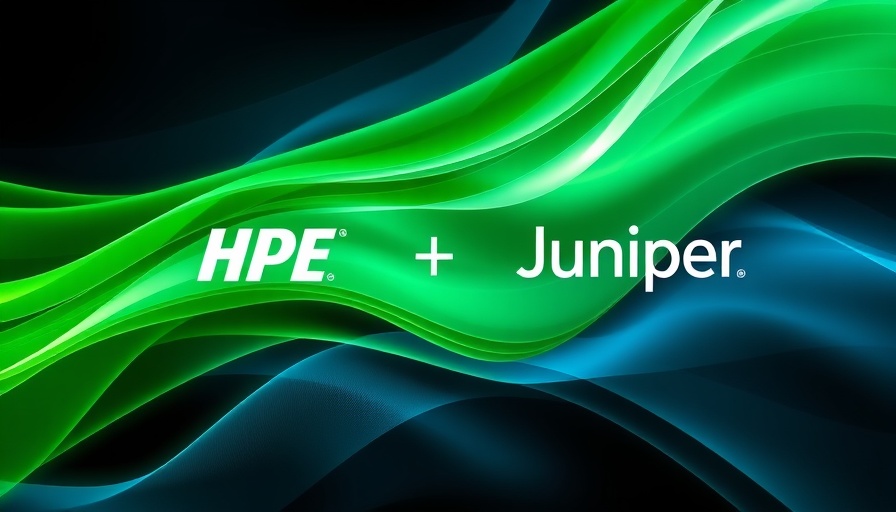
Big Moves in Tech: HPE and Juniper Collaboration
Hewlett Packard Enterprise (HPE) has officially finalized its acquisition of Juniper Networks, a strategic step that promises to reshape the technology landscape. This acquisition doubles HPE's network business, enhancing their competitive edge against tech giant Cisco. Operating under the new name, HPE Networking, the integration of Juniper will focus heavily on advancements in AI-native networking—an essential component as industries pivot towards digital transformation.
Bridging Technologies: A Need for Robust Network Infrastructure
As we've seen through trends highlighted by HPE CEO Antonio Neri, the intersection of artificial intelligence (AI) and networking is becoming increasingly critical. Neri emphasizes that a state-of-the-art network infrastructure is vital for the optimal functioning of AI applications, creating a natural synergy between Juniper’s capabilities and HPE's existing frameworks.
Strategic Objectives: Competing with Cisco
This acquisition isn't just about expanding product lines; it's a tactical move aimed to challenge Cisco's long-standing dominance in networking. With Cisco recently dropping from Gartner's top quadrant for LAN and WLAN networks, the competitive landscape appears ripe for disruption. HPE's integration of Juniper's expansive offerings—including data center solutions and a robust security portfolio—creates a formidable challenge to Cisco's established position.
Future Predictions: What the Acquisition Means for Businesses
If HPE successfully integrates Juniper and maximizes their combined resources, we could witness a significant reshaping of network infrastructure models across businesses. This fusion aims at creating a more seamless experience in hybrid cloud environments—something that many companies are striving towards in today's digital-first world. The ultimate question remains: Can HPE position itself effectively to outpace Cisco?
Risk Factors: Challenges in Integration
While the promises of this acquisition sound compelling, there are inherent risks. The process of merging two distinct corporate cultures and operational strategies can often lead to challenges in execution. Without effective integration, the anticipated synergies may not be realized, transforming a $X billion acquisition into a costly misstep.
Emotional Perspectives: Reflecting on the Industry's Evolution
The tech industry is witnessing a monumental shift. For tech professionals and businesses, this acquisition symbolizes a broader trend of strategic consolidations aimed at fostering innovation and improving customer experiences. As stakeholders, we should reflect on how these changes might affect us positively or negatively, pushing the boundaries of what's possible in networking.
In conclusion, HPE’s strategic acquisition of Juniper Networks not only elevates its own stature in the tech industry but also signals an exciting new chapter in networking solutions that positively impact our digital experiences. Keep an eye on how this transformation unfolds and what it might mean for your organization's future.
 Rij toevoegen
Rij toevoegen






Write A Comment